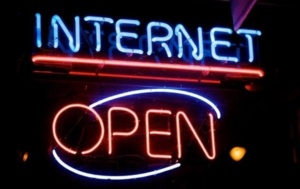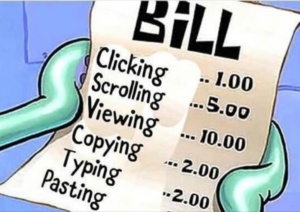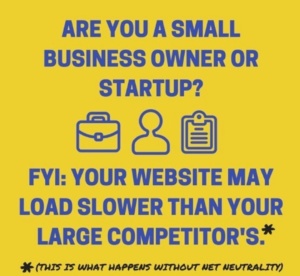Does net neutrality gone ? No. Net neutrality explained, the Compendium
Net neutrality has had through the last several years many apparent meanings and served to provoke a lot of debates across specialist from different fields of expertise, the issues that call on the term vary depending on geography, economics, business conditions, and regulatory environment, the debates and arguments advanced for or against net neutrality has evolved through the years from different perspectives to become inconsistent for comparison. we are trying here to compile as many resources as possible so we can cover different angles concerning net neutrality to give you a clear view on what is net neutrality and what are the implications for it.
Net neutrality definition
net neutrality defines that Internet traffic shall be treated in a nondiscriminatory fashion so that Internet users can freely choose online content, applications, services, and devices without being influenced by discriminatory delivery of Internet traffic. Such freedom of choice is allowed by the original architectural choices that made the Internet an open and general-purpose network fostering end-users’ creativity and innovation while preserving individuals’ freedom of expression. The concept of network neutrality refers to the policy and regulatory choices that should be made to frame network management practices so that Internet openness and full respect for human rights can be safeguarded.

Net neutrality history
In the USA, there is limited competition for the provision of broadband Internet access. Historically, the dial-up Internet had many providers, but broadband technology tended to be associated with coaxial cable television networks, hybrid fiber/coax, digital subscriber loops on copper, and fiber to the home. The usual providers of these broadband services were traditional telephone companies and television cable companies. Residential subscribers might have a choice of two broadband providers (a telco and a cableco), or perhaps only one of them or, especially in rural areas, no broadband service choice at all. Alternative access methods including Wireless Internet Service and satellite tended to have limits either with regard to speeds or latency or both. In all cases, the residential services tended to be asymmetric, providing higher speeds in the download direction.
In the recent past, some providers, notably Google, have been offering very high capacity in the gigabit per second range in both directions. After lengthy debates, the American Federal Communications Commission decided to reclassify Internet service as a Title II Telecommunications Service, while forbearing to apply most of the regulations found in that title to the providers of Internet service. This was a controversial decision but understandable, given that court cases disputing the FCC’s jurisdiction in the space turned on the earlier decision by the FCC to declare the Internet vertical information service. The new classification appears to give the FCC authority to respond to potential anticompetitive behaviors by Internet service providers. A risk is that the forbearance might be reversed and a more elaborate regulatory practice might be adopted. Perhaps the most practical outcome would be a new title in an amendment to the Telecommunications Act that would be specific to the Internet and suitably constrained. In other jurisdictions, while the same term, net neutrality, is used, the local regulatory conditions may be different. In some countries, broadband services are provided on a wholesale basis to any party that wishes to use the infrastructure to provide residential customers with access to the Internet.
In the UK, Australia, the Netherlands and New Zealand, variations on this theme have been undertaken with varying results. There are also debates about the quality of service, fueled by the belief that the Internet should be sensitive to application requirements and provide low latency or high bandwidth, depending on the need. Some take the position that there is no need for special controls for quality of service if the absolute capacity of the access is high enough. Others think that users and application providers should be able to obtain the appropriate quality of service needed for specific applications. It is common, however, to argue that the broadband access providers should not be in a position to selectively extract additional rents from the application and content providers, effectively controlling which application can be used or content providers can be reached and used satisfactorily by users—essentially dictating user choice.
It seems important to preserve the notion that the Internet should support what is sometimes called “permissionless innovation”—that is, that innovators of new applications and services should not be forced to conclude some kind of contractual agreement with every Internet access provider in the world before a service can be offered. One must accept, however, that some services may work poorly or not at all if adequate capacity is not available to support them.
The conundrum in the net neutrality debate is to fashion incentives for access providers to continue to invest in and upgrade service capacity while preserving user choice and provide incentives for new applications to be brought to the Internet and made accessible to al access subscribers without inhibiting new entrants into the marketplace of Internet services by erecting barriers to their entry.
Net neutrality effects
It is hard to say if net neutrality is a good or bad idea, there are strong arguments for net neutrality as there are against, to decide we are going to help you by presenting net neutrality pros and cons, the arguments that are for net neutrality benefit and those are against it, so you can wrap your brain around for a moment and see which side you lean toward.
Arguments for:

The Internet is telecommunications and thus Title II. Automatically. This is how the Internet was run from the day it was first built. Bush II, without proper authority, decided data was not communications. The current decision rests on whether deregulation was lawful.
When ISPs can dictate what companies can operate and what cannot, you are in a dangerous situation.
The Internet does not use static routing. A VOIP call across Britain can traverse the U.S. – why should the British users pay a U.S. ISP to make a phone call across Britain?
America has the lowest Internet bandwidth and the highest costs of almost any nation. Don’t go blaming distances, the cities in the U.S. are worse off than the most remote fjords of Norway and pay far more for the privilege of being deprived.
There is plenty of dark fiber that could be lit at next to no cost. Bandwidths could be improved and congestion relieved at near-zero infrastructure cost. So this isn’t about congestion, this is about profit.
As noted in the article, it is impossible to offer an alternative. The existing ISPs will simply destroy your cables. They have more money and better lawyers. This is not a free market, this is a criminal enterprise. Besides, even if you did that, you’d have to replace tiers 1 through 3 before a real alternative existed.
It would take maybe 30 seconds to roll out WRR to ensure that pipes were sampled in proportion to their relative width. This would eliminate bandwidth hogs, the source of the alleged problem. Alleged? Well, yes, since the fix is that easy, if that was the problem then the fix would be in place. Therefore it is not the problem.
The last mile has ceased to be physical for phones across most of the U.S., it’s Internet-based. That means ISPs decide who you are allowed to call. Do you seriously think that’s a good idea?
911 was down in Virginia the other day. For the whole State. The loss of net neutrality means that a misconfigured system could shut it down for the whole country. Something has to allocate bandwidth for calls, now they’re not leased line. Do you have absolute faith that nobody will ever fat-finger a setting on that system?
The entire U.S. portion of the Internet should be renationalized and placed under the control of the Internet Czar or the NSF, or handed over to an international group under the UN. ICANN (ICANT) and FCC incompetence and negligence proved that. The UN has been clamoring for this for years, shouted down by freedom advocates who now see just which side they were really on.

Arguments against:
Protecting the average user from the power user: Users who download gigabytes of data may unfairly hog bandwidth resources from those who don’t. By throttling certain users or types of data, ISPs can be sure that every user has an optimal experience.
Preventing illegal activity: ISPs generally want to prevent illegal file-swapping over their networks, both due to the legal issues and for basically the same bandwidth reasons as #1.
Privilege Special Services: Certain important Internet services require heavy and uninterrupted bandwidth use, such as medical services or VOIP. ISPs want to give special preference to these unique services that could benefit from special treatment, and possibly could not exist without this preferential treatment. This is one of the key arguments in the Verizon/Google Proposal of 2010.
This is the ISPs business; the government should not be interfering with it: Government control of industries is usually not a good thing, as we can see from the history of communist Russia. In this case, the ISPs have created this entire business, and so it should logically be theirs to control. Being forced to treat all data equally isn’t helpful to the ISPs themselves. The ISPs have set up this entire system, investing in the internet usage of the public, and taking all of the financial risks.
Blocking illegal internet usage: This is actually a very valid argument. ISPs should not have to deal with hackers or people who are using the internet illegally. Treating all data equally (the principle of Net Neutrality itself) means that criminals can transfer data illegally and the ISPs can’t do anything about it.
Some situations really require a better internet connection: Imagine working in a hospital, downloading critical data from the internet. With Net Neutrality, the connection is slow and you have to wait painstakingly for a transfer of information that could potentially save your patients life. But if ISPs can modify this, then they can strengthen the bandwidth, perhaps saving lives, even if they slow several people’s internet connections in the process.
There is no such thing as true net neutrality: What is net neutrality? It is the principle that Internet service providers should enable access to all content and applications regardless of the source, and without favoring or blocking particular products or websites. Thus they should not discriminate against data packets. ISP’s are already selectively speeding up or slowing down data packets depending on the subscriber. The data packets of a person who has done 3G recharge are not choked while the data packets of a poorer person who does a 2G recharge are slowed down. Therefore, I could equally argue that net neutrality exponents are hypocrites who cry foul only when a corporate company foots the internet bill of someone so that it can reap commercial benefits without doing anything illegal. I could say that it is the middle-class hypocrisy.
It’s unfavorable to the poor: Net neutrality exponents are denying the poor people access to what few websites they can access through basic providers. True, currently many websites are not on offer. But that doesn’t mean they won’t be added later. Even if they aren’t, can’t the existing ones on offer be used by them to empower themselves? Why should a free offering of facebook be so shunned? The net neutrality exponents are crying exploitation of the poor people in the name of free internet. I could say that they are patronizing the poor as incapable of making a decision of their own. No one needs to dictate to me what is good or bad for me. I can choose for myself. Who are you to tell me that free facebook is a bad thing for me?
It’s suppressing competition: Why not spur competition by allowing companies to decide policies based on the market? After all, that is the great theme of this century, isn’t it?
- Internet is already fragmented: Another argument by the net neutrality exponents is that it will lead to fragmentation of the internet. But, isn’t the internet already fragmented as it is? We have deep web, dark web, military networks, college networks, and whatnot. A gazillion private fragmented spaces are there. I could equally argue that fragmentation of the internet is a basic feature of it. Why fear one more layer of fragmentation? There is no such thing as the right stance in the debate on net neutrality. Both sides have their own interests. There are vested interests on both sides. Both arguments have their merits and demerits. It is not true that net neutrality proponents are true blue knights, while those who argue against it are death eaters.
Net neutrality regulation
So, let’s first address the most controversial thing about net neutrality which is net neutrality repeal, It was never quite a “law” to be repealed. It has long been a principle adhered to by almost all ISPs, in that they would not restrict traffic based upon the IP address you were attempting to visit (just as telecoms don’t pre-select what telephone numbers you can call.) It was enacted as a formal regulation by the FCC under Obama, and withdrawn by the FCC under Trump, although attempts by the major ISPs to have this “repeal” fortified by the courts is still in limbo. In the following, you are going to find a citation to net neutrality law (FCC net neutrality lawsuit) and some regulatory references about related issues.
A lawsuit against the FCC to “stop the illegal rollback of net neutrality”
Congressional Review Act (CRA) to reverse the repeal
California net neutrality law (2018)
Net neutrality Example
Facebook has itself acted as a technology enabler for thousands of businesses. There are freelance photographers, small and medium businesses who court business via this platform. It also has educational content which too can be empowering. So why shun the non-neutral internet? What gives the net-neutrality exponents more right to decide on what the poor want? It is not that they are forced into the scheme. Isn’t there a government and regulators to make sure that such exploitation doesn’t happen?
Net neutrality news
FCC Chairman Ajit Pai talks rural broadband at Wichita conference
https://vods3-prod.franklyinc.com/kake/KAKE_190920191805378901AC.mp4
FCC Net Neutrality Summit
https://ia801606.us.archive.org/15/items/FCC_Net_Neutrality_Summit/FCC_Net_Neutrality_Summit.mp4
A new direction for net neutrality debate
In recent years, the Federal Communications Commission (“FCC”) has become a microcosm of the political battles in Congress. The Democratic-controlled Wheeler Commission entitled its Net Neutrality Order “Protecting and Promoting the Open Internet.” Not to be outdone, the Republican-controlled Pai Commission that overturned that Order entitled its own “Restoring `Internet Freedom.” And like Congressional pronouncements, Commissioners look to grab headlines with dramatic statements of impending doom if their policies are not enacted. We show that the untold societal damage that both sides claim to have relatively little to no factual support. Outmoded distinctions between information and telecommunications services exacerbate the situation because a good deal of regulatory history is built on them. As a potential way forward toward reliance on theoretically-sound, evidence-based decision-making, the authors recommend moving away from the silo mentality of focusing on whether particular services are information services or telecommunications services (e.g., Broadband Internet Access Service (BIAS)) toward a focus on packet transmission across broadband networks. Such an approach would facilitate fresh perspectives with the objective of more collaborative, less confrontational regulatory decision-making.
-
Claims that Net Neutrality regulation will cause major social damage has little to no factual support.
-
Outmoded service categories create conflict.
-
A way forward is to move away from focusing on classes of services.
-
Focus on allowing customers to purchase transmission at the quality of service levels.
-
This wider view gives both sides of the debate fresh perspectives for collaboration.
net neutrality Bernie sanders
Senator Bernie Sanders has made reinstating net neutrality via FCC appointments one of his campaign promises, The Daily Dot reported today. He is far from alone among the Democratic presidential candidates in supporting the policy but appears to be the first to make it part of his election campaign. Also, a group is asking 2020 candidates to pledge to support #NetNeutrality
A coalition of major advocacy groups is asking 2020 candidates to pledge to support #NetNeutrality & reject contributions from Big Cable JOIN US: Tell candidates to sign this pledge & address the critical issue of #NetNeutrality at tonight’s debate: https://t.co/uLy85let77
-– Fight for the Future (@fightfortheftr) September 12, 2019
Additional resources
For those who want to go deeper in this matter, here i compile a list of resources that may take you a step further about in the understanding of net neutrality and its implication.
WRECKING THE INTERNET TO SAVE IT? THE FCC’S NET NEUTRALITY RULE
Filtering Out The Bots: what Americans actually told the FCC about net neutrality repeal
Internet Daemons: digital communication possessed
Net neutrality: an unexpected solution to blockchain scaling